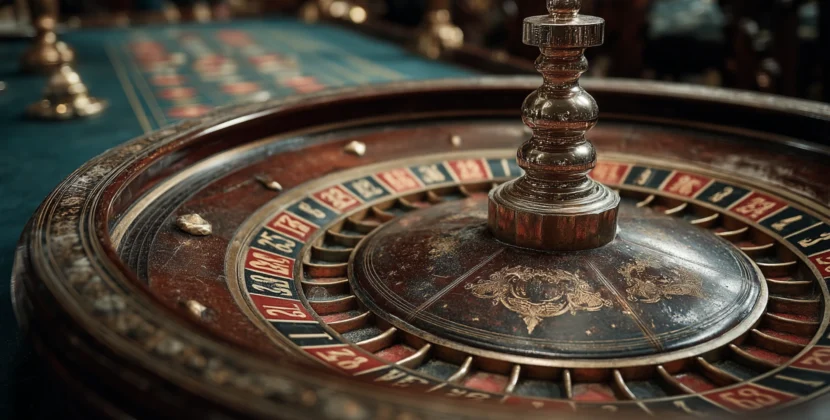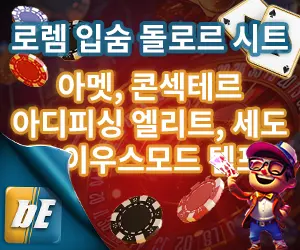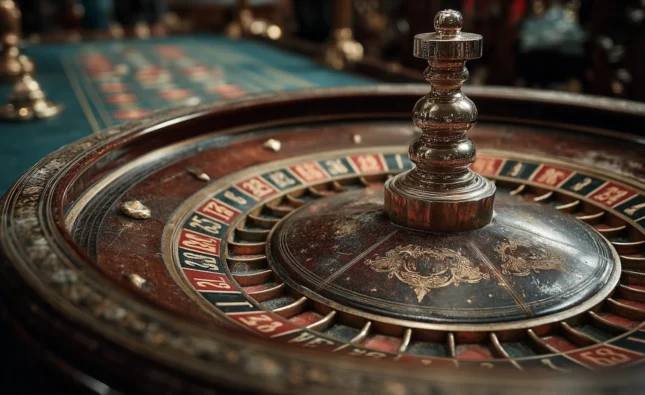
In the world of poker, skill development is a never-ending journey, shaped by experiences both at the table and in life. As one of the elite professional poker players, Benjamin Rolle—known in the poker community as “bencb789″—has spent over 15 years honing his craft. In this article, we’ll explore key insights from Rolle that go beyond mere strategy, delving into the essential mindset and philosophies that can elevate your poker game.
Embracing the Ups and Downs
One of the first lessons Rolle imparts is the significance of embracing downswings. Every player experiences these tough periods where luck seems to be against them. Instead of viewing these moments as setbacks, they should be seen as integral to the growth process. Just as in nature, where plants need rain to flourish, poker players must endure challenges to develop resilience and improve their game.
Rolle emphasizes that frustration during downswings is not unique to poker; it reflects a universal truth in life: worthwhile achievements often require overcoming obstacles. By trusting in the journey, players can maintain a long-term perspective, understanding that victories will eventually follow if they remain committed to their craft.
The Mindset of a Poker Player
Poker is often likened to life itself, where effort does not always yield immediate rewards. You can play optimally and still lose, which can be disheartening. However, the key takeaway here is that maintaining a focus on the process, rather than just the results, is crucial for long-term success.
Many individuals who began their poker journey have transitioned successfully into business, demonstrating that the skills developed in poker—resilience, patience, and a strategic mindset—are transferable to various life situations. Understanding that consistent effort and learning pave the way for eventual success can help players remain motivated even during challenging times.
Continuous Learning and Adaptation
Rolle’s approach to improvement highlights the importance
of continuous learning. Practicing poker isn’t solely about playing more hands; it involves analyzing gameplay, observing opponents, and being open to new strategies. The most successful players are those who remain curious and adaptable, rather than attributing losses to bad luck or weak opponents.To truly enhance your poker skills, it’s essential to focus on what matters. Engaging in consistent study, whether through reviewing hands, discussing strategies with peers, or utilizing training resources, lays the foundation for sustainable improvement.
Self-Awareness in Poker
Understanding your own strengths and weaknesses is vital for development in poker. Rolle notes that there is no universal formula for how much one should play or study; this varies from player to player. Some may find poker isn’t suited to them, and that realization is a vital part of the journey.
The key is to cultivate self-awareness. By recognizing what works for you personally—be it frequency of play, study habits, or emotional management—you can tailor your approach to align with your goals and lifestyle.
Decision-Making Under Pressure
Rolle points out that there’s always a best decision in any poker scenario. Complaining about bad luck or playing beyond your bankroll does not constitute sound decision-making. Instead, players should take proactive steps: taking breaks, consulting friends for advice, or reviewing past gameplay can lead to improved performance.
Stress in poker, like in life, can serve as a catalyst for growth if managed correctly. Rather than avoiding stressful situations, players should learn to leverage stress as a motivator for peak performance. This mindset shift can turn pressure into a powerful tool for improvement.
Focus on Effective Study Habits
Rolle advises against drowning in excessive study without a clear direction. While studying advanced strategies, such as those involving game theory optimal (GTO) approaches, can be beneficial, it’s equally important to identify where your money is coming from and what your specific leaks are. By focusing on the areas that will yield the most significant results, players can maximize their learning and avoid feeling overwhelmed.
Effective study should combine theoretical knowledge with practical application. Balancing these two aspects allows for a deeper understanding of the game and leads to better decision-making during actual gameplay.
Finding Value Beyond Money
While poker is inherently a financial game, it offers far more than just monetary rewards. The journey of learning and improving can yield invaluable life lessons. Players who focus solely on profits may miss out on the rich experiences poker has to offer.
Embracing both the highs and lows of poker can lead to a fulfilling journey that extends beyond the table. As players commit to learning and growing, they’ll find that the skills and resilience developed through poker can positively impact various aspects of their lives.
Building a Support Network
Another crucial element to consider is the power of community and support. Engaging with fellow players, whether through forums, local clubs, or training sites, can provide fresh perspectives and motivate improvement. Sharing experiences and strategies fosters an environment where everyone can learn from one another, enhancing the overall poker experience.
When players discuss their challenges and successes, they can gain insights that might be overlooked in solitary study. Building relationships within the poker community can lead to collaborative growth, enriching the learning process.
Setting Realistic Goals
Goal-setting plays a fundamental role in poker and life alike. Setting realistic, achievable goals allows players to track their progress and celebrate milestones, no matter how small. Whether it’s improving a specific aspect of your game, reaching a certain bankroll level, or successfully managing emotional responses, these goals provide direction and purpose.
Having clear objectives not only enhances focus but also fosters a sense of accomplishment as you work toward each target. As you achieve these goals, you’ll build confidence and motivation to tackle the next challenge.
Conclusion: The Lifelong Journey of Poker
In conclusion, poker is much more than a game of cards; it serves as a microcosm of life, offering lessons in resilience, decision-making, and self-awareness. As Benjamin Rolle articulates, embracing the challenges and joys of poker fosters personal growth that transcends the table.
By continuously learning, adapting strategies, and remaining focused on the process rather than just results, players can unlock their potential both in poker and in life. Whether you are a novice or an experienced player, the insights shared here can guide you on your journey to becoming a better poker player and an enriched individual. Remember, poker is not merely about the money; it’s about the experiences and lessons learned along the way.

















